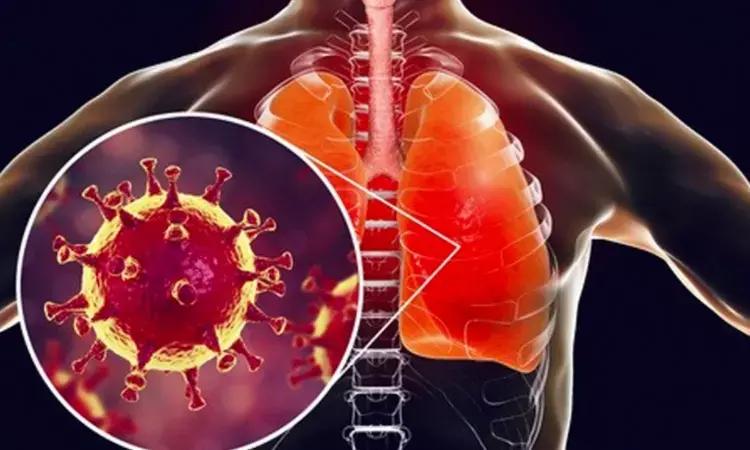No Evidence Of Left Ventricular Dysfunction In COVID-19 Survivors: BMJ
- byDoctor News Daily Team
- 06 July, 2025
- 0 Comments
- 0 Mins

UK: Results from a prospective multimodality two-center observational study have shown that patients recovering from severe COVID-19 do not have evidence of left ventricular dysfunction compared with comorbidity-matched volunteers. However, right ventricular abnormalities do occur and likely indicate the consequences of severe viral pneumonia.
The study results, published in the BMJ journal Heart, suggest that prior reports of left ventricular myocardial abnormalities following COVID-19 may indicate pre-existing comorbidities.
There has been a major interest in the cardiac consequences of COVID-19, and it is requisite to establish the true impact of COVID-19 and its impact on healthcare in the years to follow. Trisha Singh, BHF Centre for Cardiovascular Science, The University of Edinburgh, Edinburgh, Edinburgh, UK, and colleagues, therefore, aimed to determine the contribution of comorbidities on the reported widespread myocardial abnormalities in patients with recent COVID-19.
For this purpose, patients hospitalized with confirmed COVID-19 underwent gadolinium and manganese-enhanced MRI and CT coronary angiography (CTCA). They were compared with healthy and comorbidity-matched volunteers after blinded analysis.
In 52 patients (median age: 54 years, 39 males) who recovered from COVID-19, one-third (n=15, 29%) were admitted to intensive care and a fifth (n=11, 21%) were ventilated.
Key findings of the study include:
Twenty-three patients underwent CTCA, with one-third having underlying coronary artery disease (n=8, 35%).
Compared with younger healthy volunteers (n=10), patients demonstrated reduced left (ejection fraction (EF): 57.4±11.1 versus 66.3±5 and right (EF: 51.7±9.1 vs 60.5±4.9 ventricular systolic function with elevated native T1 values (1225±46 vs 1197±30 ms) and extracellular volume fraction (ECV) (31±4 vs 24±3%) but reduced myocardial manganese uptake (6.9±0.9 vs 7.9±1.2 mL/100 g/min).
Compared with comorbidity-matched volunteers (n=26), patients had preserved left ventricular function but reduced right ventricular systolic function (EF: 51.7±9.1 vs 59.3±4.9%) with comparable native T1 values (1225±46 vs 1227±51 ms), ECV (31±4 vs 29±5%), presence of late gadolinium enhancement and manganese uptake.
These findings remained irrespective of COVID-19 disease severity, presence of myocardial injury or ongoing symptoms.
"Patients demonstrate right but not left ventricular dysfunction. Previous reports of left ventricular myocardial abnormalities following COVID-19 may reflect pre-existing comorbidities," wrote the authors.
"There is a need for further research to establish the true extent of cardiac abnormalities in patients who have suffered severe COVID-19 and to determine whether this is likely to impact on their long-term clinical outcome," they concluded.
Reference:
Singh T, Kite TA, Joshi SS, et alMRI and CT coronary angiography in survivors of COVID-19Heart Published Online First: 06 October 2021. doi: 10.1136/heartjnl-2021-319926
Disclaimer: This website is designed for healthcare professionals and serves solely for informational purposes.
The content provided should not be interpreted as medical advice, diagnosis, treatment recommendations, prescriptions, or endorsements of specific medical practices. It is not a replacement for professional medical consultation or the expertise of a licensed healthcare provider.
Given the ever-evolving nature of medical science, we strive to keep our information accurate and up to date. However, we do not guarantee the completeness or accuracy of the content.
If you come across any inconsistencies, please reach out to us at
admin@doctornewsdaily.com.
We do not support or endorse medical opinions, treatments, or recommendations that contradict the advice of qualified healthcare professionals.
By using this website, you agree to our
Terms of Use,
Privacy Policy, and
Advertisement Policy.
For further details, please review our
Full Disclaimer.
Tags:
Recent News
Sleeping with Low Pillow Height May Increase Risk...
- 05 November, 2025
Novel Blood Test May Offer definitive diagnosis fo...
- 05 November, 2025
Esmolol Outperforms Landiolol in Reducing Mortalit...
- 05 November, 2025
Max Healthcare and Tata Institute for Genetics and...
- 05 November, 2025
Daily Newsletter
Get all the top stories from Blogs to keep track.


0 Comments
Post a comment
No comments yet. Be the first to comment!